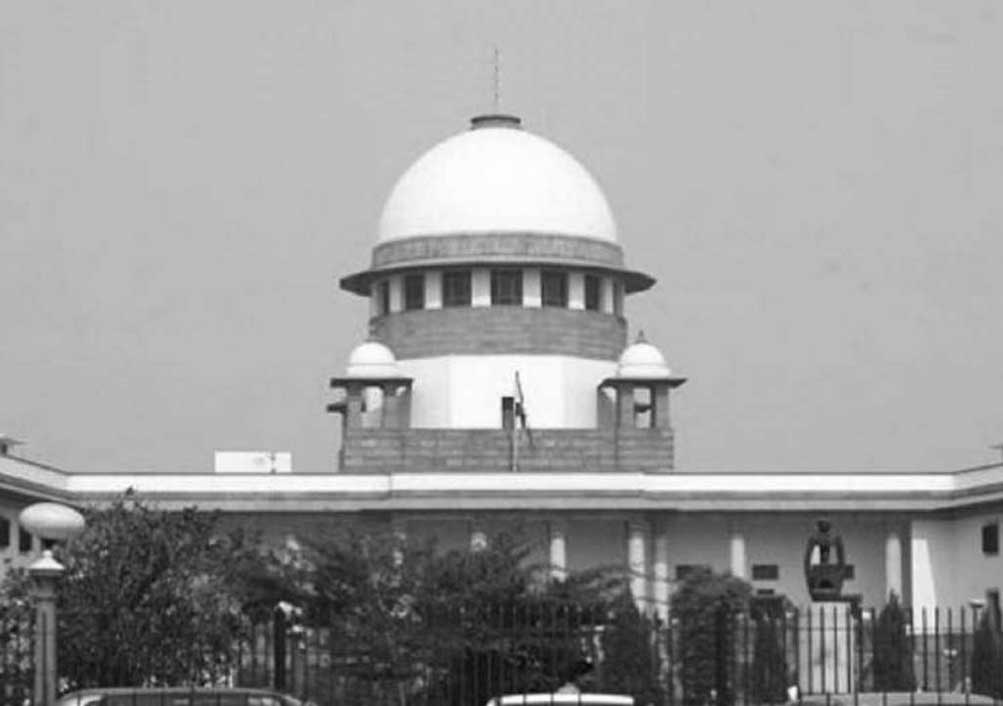In Civil Appeal No. 3322 of 2015 -SC- Supreme Court dismisses appellant's ‘greedy attempt’ to ‘extract more money’ from State in land sale dispute
Justice Vikram Nath & Justice Rajesh Bindal [30-11-2023]

Read Order: Bani Amrit Kaur V. State of Haryana and Others
Chahat Varma
New Delhi, December 6, 2023: In a recent ruling, the Supreme Court has dismissed an appeal challenging a land sale transaction that occurred 16 years earlier. The Court found that the appellant had failed to provide any evidence to support her claim and that her attempt to challenge the sale was motivated by greed.
Briefly stated, the predecessor-in-interest of the appellant, Sukhjit Singh (deceased), had initially filed a suit, challenging the validity of the first sale deed dated 28.09.1956, which had been registered by his father, Gurinder Singh (now deceased), for the land measuring 166 kanals and 15 marlas in favour of Harjit Singh. Subsequently, Harjit Singh sold a portion of this land to the State of Punjab (now falling in the State of Haryana) through a second registered sale deed dated 01.03.1958. The predecessor-in-interest of the appellant had contested the first sale deed, alleging that his father had sold the land when he was a minor without obtaining the required permission from the Court as per Section 8 of the Hindu Minority and Guardianship Act, 1956, and that the sale was not for the need and welfare of the minor.
The Trial Court had decreed the suit in favour of the predecessor-in-interest of the appellant. The First Appellate Court, had upheld the judgment and decree of the Trial Court. However, the Punjab and Haryana High Court, in second appeal, had reversed the judgments and decrees of the lower courts.
The division bench of Justice Vikram Nath and Justice Rajesh Bindal found the suit to be entirely misconceived. It was noted that the appellant had failed to provide any document showing the right in the property at the time when the first sale deed was registered. The bench also highlighted the absence of pleading or documents to demonstrate that the property in question was ever transferred in the appellant's name in a family partition, along with the corresponding shares of other daughters and sons of late Gurinder Singh.
In light of this, the bench concluded that the litigation, where a sale deed registered in 1956 was sought to be challenged after 16 years by the appellant, seemed to be an attempt to extract more money from the State, which the State had purchased from the first purchaser.
The bench also noted that, in any case, the certificate presented by the appellant, indicating his enrolment in Doon School, Dehradun, strongly suggested that the property might have been sold for the welfare and educational needs of the child. It was emphasized that in cases where a plaintiff sought to challenge a sale transaction that occurred 16 years earlier, the burden of proof was substantial.
Further, it was noted that during the hearing, the State had offered an additional amount of Rs. 1,00,00,000 to the appellant, which was not acceptable to her as she claimed that the present value of the property may be more than Rs. 15,00,00,000, leading to the court's remark that she appeared to be greedy.
Thus, the Court found no grounds for intervention in the appeal and subsequently dismissed it.
Sign up for our weekly newsletter to stay up to date on our product, events featured blog, special offer and all of the exciting things that take place here at Legitquest.




Add a Comment